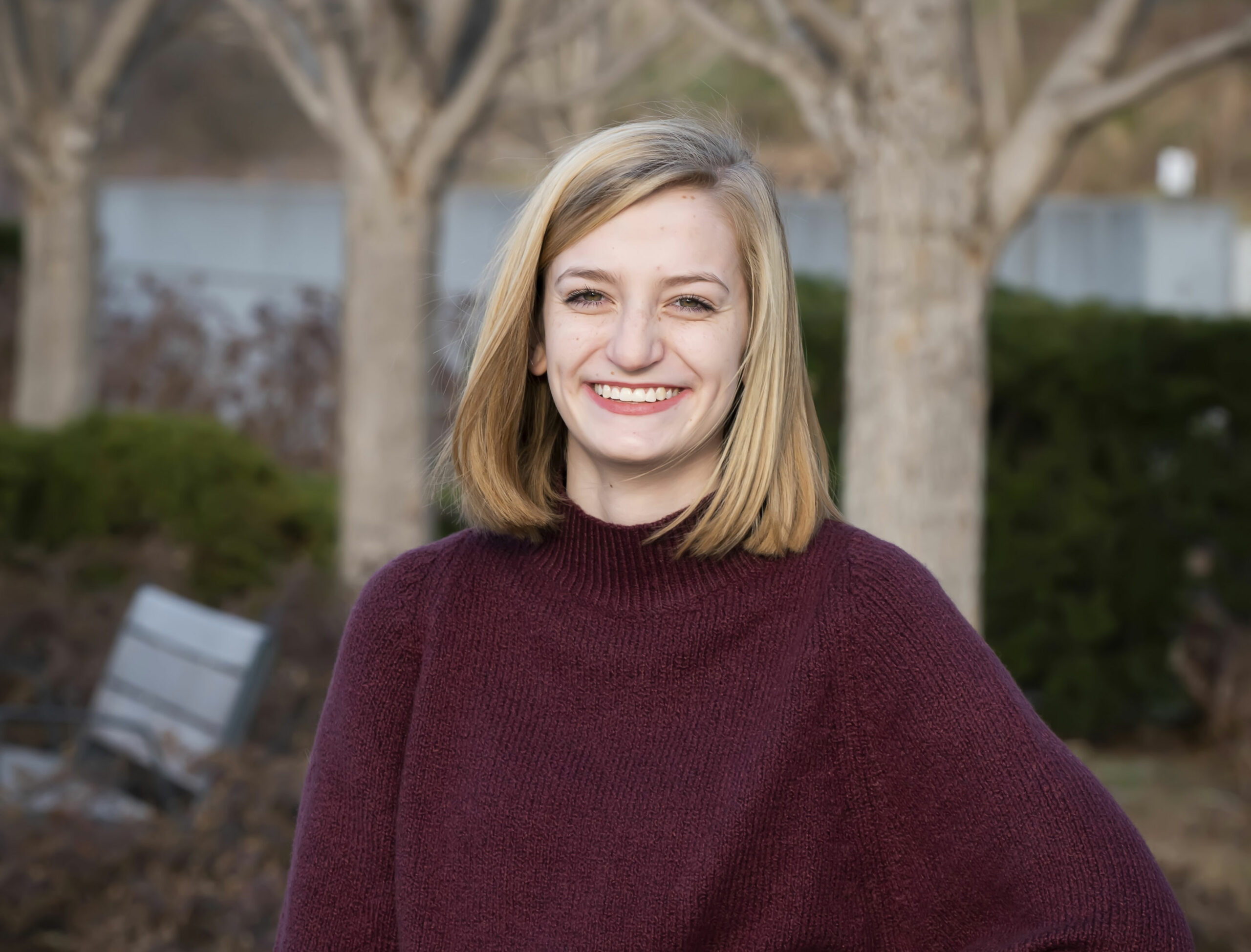Guest commentary: My experience overcoming imposter syndrome while teaching abroad

BY ELEANOR HILDEBRANDT
It was a sunny Tuesday in September, less than a week into my Fulbright grant, when I wandered into Madam Anna Ekke, a cafe in Munich, with a new friend. As we perused the menu and I suggested food options, my friend corrected my pronunciation of every single item. I understood every option without assistance, but as I ordered, the server began to speak in English.
I left lunch feeling defeated and concerned. The next day, a seventh grade student corrected my pronunciation of a word I’d been using in college classes for over a year – in front of the entire class.
While I had only visited Germany once for a 10-day class trip in high school, I’d spoken German on and off for eight years by the time I arrived for my year of teaching English abroad. Upon the realization that my German-speaking skills were not up to par, I also began to feel strong cultural differences and constantly felt lost in translation.
I had so many unanswered questions. Why did my students ask to see my prom photos when the male English teaching assistants I knew were asked about their college educations and what they wanted to do after their year in Germany? How many of the American stereotypes was I fitting into while at work or exploring the city? Did I need to stop showing photos of male friends and former coworkers, so my students would stop asking if they were my husband? Would my German ever improve, or would baristas and cashiers always default to English when they heard my American accent?
Every Fulbright grantee is specifically placed in a city or town that Fulbright Germany and the Pädagogischer Austauschdienst (the German Pedagogical Exchange Service) feel is right for the person. The over 100 grantees for the 2023-24 year are vastly spread out. They all were experiencing their own problems and triumphs, blowing up group chats with both.
There is one other assistant based in Munich and another outside the city, but neither teach at two gymnasiums (grades fifth through 12th) like I do. Some English teaching assistants majored in education or in German, or both, and had no trouble assimilating. Calling friends and family from home always ended in me sharing how lovely my students and colleagues were and how I was getting acquainted with my new city.
When I eventually mentioned my concerns about my German skills, I’d be met with “Well, you’ll get there,” or “I’m sure that’s perfectly normal.” I felt extremely isolated with strong feelings of imposter syndrome, occasionally questioning if I should get on the next flight back to Iowa because I knew it would be easier.
Armed with my journalism skills, I decided to do one of the things I know how to do well: dive in. I researched and signed up to volunteer with three German-American exchange programs, focusing on English literature and question-and-answer sessions for students around my city.
Fulbrights are lucky enough to be partially paid in time, so I used mine to meet people and get to know more about Bavaria. I preemptively put my prom and homecoming photos in my PowerPoint presentations and informed my students that my dates were just boys I am no longer in contact with.
When introducing myself to quieter groups or classes, I ask them to tell me stereotypes they have seen in movies or on TikTok to get it out of the way. The Goethe Institute — a cultural institute that facilitates cultural exchanges and German-language classes — had a Christmas discount, so I signed up for an online course with another Fulbright. I finally settled on an answer to the consistent “Ronaldo versus Messi” professional soccer question, knowing it will still disappoint half the students who ask. And I promised myself that I would never try to pronounce “eichhörnchen” (squirrel) in front of fifth graders again.
Four months into my grant, I regularly refer to Munich as home. I answer people’s questions about trains and directions often. My colleagues say I get asked more often because I look German, but I have a sneaking suspicion that it’s my “Iowa nice” roots that make me approachable.
My German improves every day, as does my love for the country. During my last semester at the University of Iowa, I accepted a simple philosophy: You miss every shot you don’t take. Luckily, that translated into me trying everything to make my Fulbright year the best one so far. I know I will continue to face challenges wherever life takes me next, but I will always be able to fall back on my persistence and ability to dig in my heels when I want something to work out. We all judge ourselves harsher than anyone else, letting our negative thoughts and worries get the best of us, but we deserve to take mistakes and anxious moments and turn them into growth.
I returned to Madam Anna Ekke in late December. I had a different waiter, but still felt anxious as they took my order and asked clarifying questions. I did not speak a word of English for the few hours I sat planning my week’s lessons. I left feeling refreshed and proud, knowing that Munich is the right place for me.
Eleanor Hildebrandt currently serves as a Fulbright Scholar in Munich, Germany. She has a B.A. in journalism and mass communication and a B.S. in global health studies from the University of Iowa, where she minored in German. Hildebrandt’s writing has been published by the Corridor Business Journal, the Iowa Capital Dispatch and the Herald Journal in Logan, Utah.


